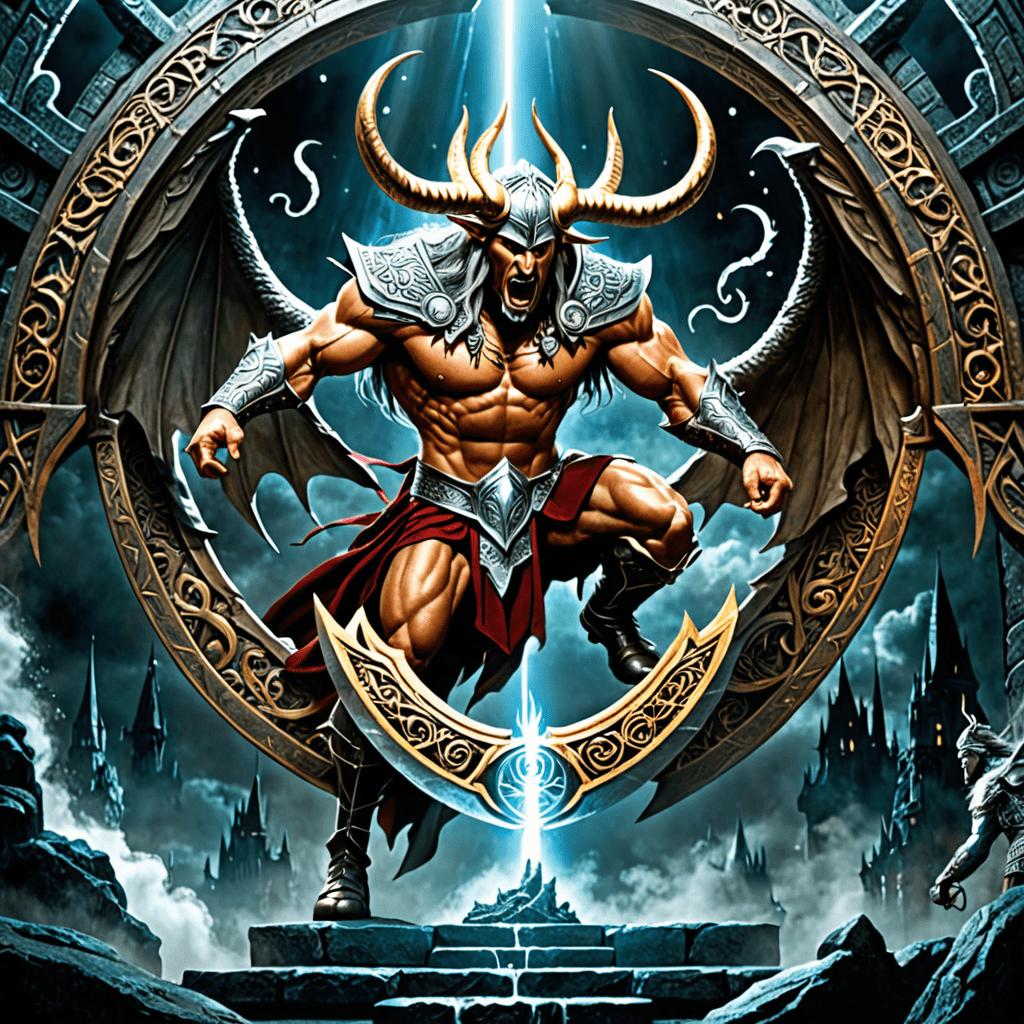The Symbolism of Dreams and Nightmares in Norse Mythology
Understanding Dreams and Nightmares in Norse Mythology
In Norse mythology, dreams and nightmares were significant as they were believed to have deeper meanings and symbolic importance. The Norse people viewed dreams as a way for the gods to communicate with humans, offering insights into the past, present, and future. Dreams were also seen as a connection to the spiritual realm, providing guidance and messages from the cosmic forces.
The Role of Dreams in Norse Mythology
According to Norse mythology, dreams were not merely random images but powerful symbols that could foretell future events or offer wisdom. The god Odin, known as the god of wisdom, was a prominent figure associated with dreams. Odin would often enter a deep sleep to gain knowledge and visions from the dream world. It was believed that those who paid attention to their dreams could gain valuable insights and guidance in their waking life.
Interpreting Nightmares in Norse Mythology
Nightmares held a significant place in Norse mythology, often seen as warnings or omens of imminent danger or misfortune. The Norse people believed that nightmares had the potential to reveal unresolved issues, inner fears, or threats lurking in the shadows. Certain creatures in Norse mythology, such as the fearsome creatures known as the Jotnar or giants, were said to be responsible for sending unsettling dreams and nightmares to individuals.
Symbols and Themes in Norse Dream Interpretation
In Norse mythology, certain symbols and themes were commonly associated with dreams and their interpretations. For instance, encountering animals like wolves, ravens, or snakes in dreams could symbolize impending danger or transformation. Flying or soaring in dreams was often seen as a sign of freedom, enlightenment, or spiritual growth. The context and details of the dream were crucial in deciphering its true meaning, as every symbol held specific significance in Norse mythology.
By delving into the symbolism of dreams and nightmares in Norse mythology, we can gain a deeper understanding of the ancient beliefs and wisdom that shaped the Norse worldview. Paying attention to our dreams and their hidden messages may offer us valuable insights and guidance in our own lives, connecting us to the profound wisdom of the Norse gods and the mystical realms beyond.
FAQ: The Symbolism of Dreams and Nightmares in Norse Mythology
What role do dreams play in Norse mythology?
In Norse mythology, dreams are often seen as messages from the gods or other supernatural beings. They can offer guidance, warnings, or insights into the future. Dreams are believed to have significant symbolic meanings and are often interpreted by seers or shamans.
Are nightmares significant in Norse mythology?
Nightmares in Norse mythology are considered ominous signs or warnings. They are believed to be messages from malevolent entities or spirits. Nightmares can symbolize inner turmoil, impending danger, or a disruption in the natural order. They are taken seriously in Norse culture.
How do dreams and nightmares influence Norse mythological beliefs?
Dreams and nightmares play a crucial role in shaping the beliefs and actions of the Norse people. They are believed to provide insights into the divine realm, influence decision-making, and prepare individuals for challenges ahead. Interpretation of dreams and nightmares is integral to understanding the symbolism in Norse mythology.
Can dreams and nightmares be controlled or influenced in Norse mythology?
In Norse mythology, there are practices and rituals aimed at influencing dreams and nightmares. Shamans or seers may perform rituals to seek guidance through dreams. Individuals may also engage in certain behaviors or offerings to appease spirits and prevent negative dreams. However, ultimate control over dreams is often seen




